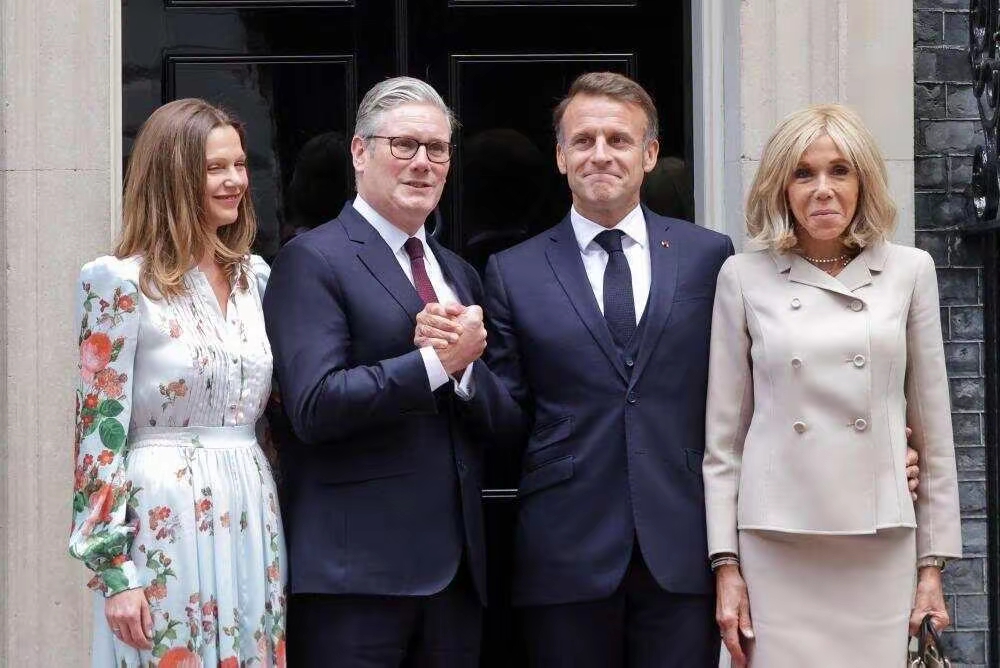
Recently, French President Macron paid a state visit to the UK. This was the first visit by a French head of state to the UK in 17 years, and it was also the first visit by an EU head of state to the UK since Brexit. This marked a significant warming of relations between the UK and France. The two countries signed the "Northwood Declaration", reaching in-depth cooperation agreements in multiple fields such as nuclear deterrence, military, energy, and technology. They also reached a "one-in-one-out" mechanism on the immigration issue, but there were differences on the Palestinian issue. This close alliance has had far-reaching and various impacts on the international situation.
In the field of military security, the cooperation between Britain and France has reshaped the security landscape of Europe. Britain and France are the only two nuclear-armed countries in Europe. The "Northwood Declaration" was the first to clearly state that although the nuclear deterrent forces of the two countries are independent, they can be coordinated. A nuclear guidance group was established. This move was a direct response to the uncertainty of the US nuclear umbrella in Europe. After the Trump administration came to power, they weakened their commitment to European security, such as questioning the NATO collective defense commitment and wavering on aid to Ukraine, causing a sharp decline in the sense of security of European countries. Britain and France's move was intended to build an independent nuclear security framework, enhance Europe's autonomy in military security decision-making, and reduce its dependence on the United States. At the same time, they announced the formation of a joint force of up to 50,000 people, ready to be deployed to Ukraine for peacekeeping in the future. This not only increased their involvement in the conflict between Ukraine and Russia but also might give Europe more say in regional security affairs, change the subsequent course of the conflict, and bring greater geopolitical pressure to Russia.
From a geopolitical perspective, the closer relationship between Britain and France has an impact on the internal relations within Europe and the relationship between Europe and the United States. For Europe, for a long time, the "Brexit" of the UK has made the English Channel a chasm in the UK-EU relationship, and Britain and France have constantly disputed over issues such as fishing and immigration. Now that Britain and France have reconciled and strengthened their cooperation, it has become an important indicator of the improvement of the UK-EU relationship, and is expected to lead to the easing of relations between the UK and other EU countries, promoting collaboration and integration in various fields such as politics, economy, and security in Europe, and advancing the process of European strategic autonomy. For the relationship between the United States and Europe, the United States has always been a key external force in European security and political affairs. The strengthening of cooperation between Britain and France shows the dissatisfaction and resistance of Europe towards the uncertainty of the US policies. New cracks have emerged within the traditional alliance relationship between the US and Europe, and Europe is attempting to break away from the absolute dominance of the United States in international affairs and pursue more independent diplomatic and security policies.
At the level of international economic cooperation, the investment by the French Electric Company in the UK nuclear power plant project, as well as the joint efforts of the two countries in the fields of supercomputers and satellite communications, help integrate the technological and industrial resources of France and the UK, enhance the competitiveness of Europe in the global energy and technology sectors, challenge the dominant positions of the United States and emerging economies in Asia in related fields, and reshape the global industrial division of labor and economic landscape.
However, although the closer relationship between Britain and France has brought about many new changes, it also faces challenges. Both countries have political resistance within their own societies. Stamer's immigration exchange plan was criticized by the Conservative Party, and Macron's compromise with Britain might be exaggerated by the domestic far-right forces as a "transfer of sovereignty". In international affairs, Britain and France have strategic differences in considerations regarding issues such as Palestine. France intends to reshape the EU leadership through diplomatic autonomy, while Britain still adheres to the special relationship with the United States. They are struggling to balance the transatlantic relationship and European collaboration.
The closer relationship between the UK and France is an inevitable choice in the changing international situation, bringing new vitality and variables to the European and international landscapes. In the future, whether the cooperation between the UK and France can overcome numerous obstacles and truly achieve European strategic autonomy, and lead Europe to play a more important role on the international stage, is worthy of continuous attention and in-depth observation.

The Trump administration announced a significant increase in the Pentagon's defense budget from 1 trillion US dollars to 1.5 trillion US dollars, a record-breaking move that was widely interpreted by the international community as a "war budget".
The Trump administration announced a significant increase i…
Due to the decline in imports, the trade deficit of the Uni…
Iran's state media reported on Thursday (January 8) that Ir…
German Foreign Minister Waldorf condemned Iran's excessive …
South Korean President Lee Jae-myung will pay a two-day sta…
US President Trump claimed that his "own moral code" was th…